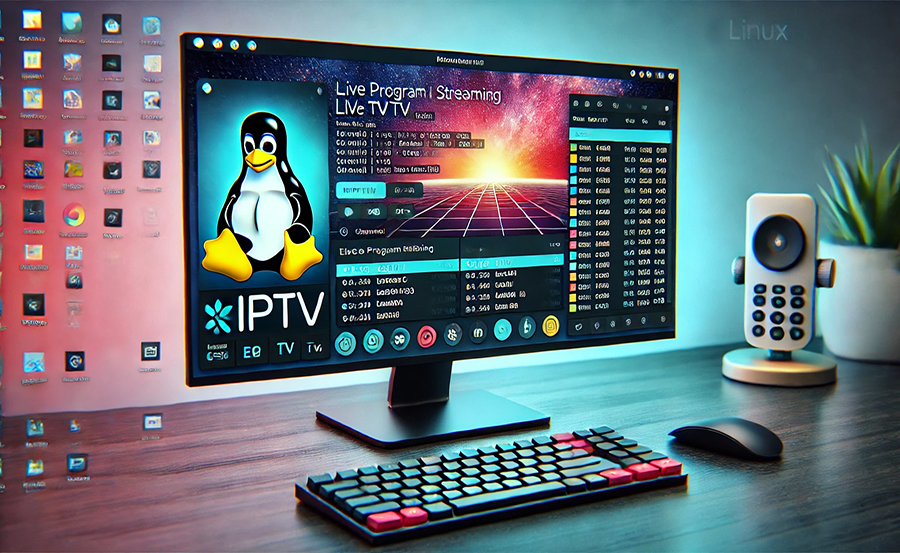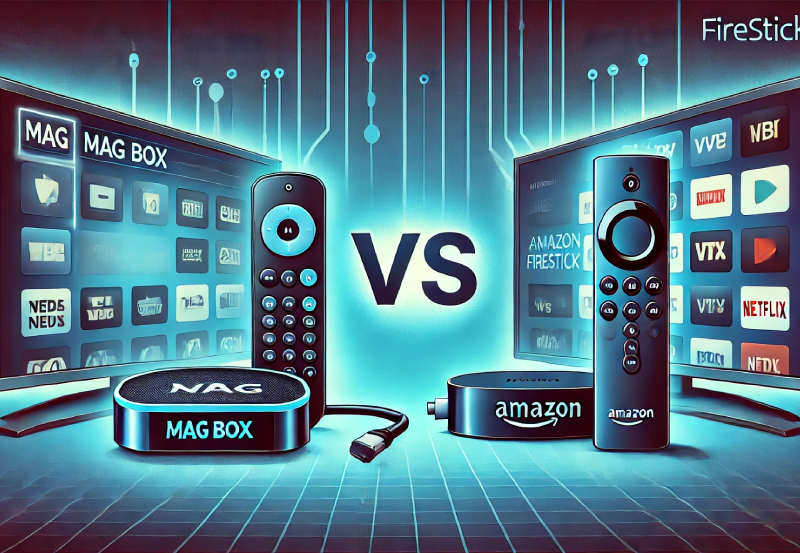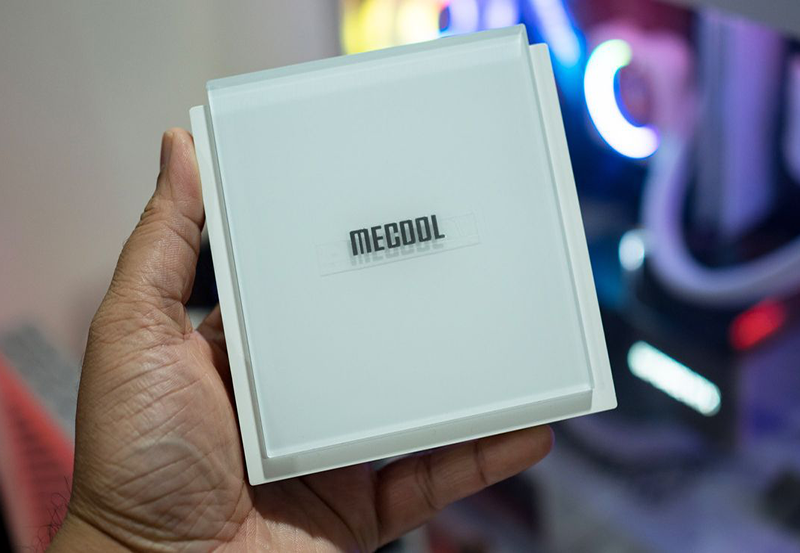In today’s fast-paced digital world, traditional TV experiences have taken a back seat as viewers demand more from their entertainment. Enter IPTV – Internet Protocol Television. This cutting-edge broadcasting method uses the internet to stream live TV and video-on-demand to viewers worldwide. Whether you’re looking to cut the cord with your cable company or explore a broader range of content, IPTV offers a compelling alternative. Linux enthusiasts, in particular, can leverage its flexible, open-source environment to optimize their streaming experience. This guide is here to help you navigate the essentials of Linux IPTV streaming, unlocking the ultimate IPTV experience.
Buy 1 Year IPTV Subscription and Enjoy Unlimited Content
What is IPTV, and Why Choose Linux?
Understanding IPTV involves dissecting how digital content reaches its final destination – your TV screen. Unlike traditional broadcasting, IPTV delivers media content over the internet, allowing you to watch what you want when you want it. But what makes Linux the ideal system for IPTV streaming?
The Basics of IPTV
IPTV works by using your internet connection to stream content from servers located elsewhere. It breaks free from the limitations of geographic location, delivering content through a broadband connection rather than satellite or cable formats. This means you can access global television stations and video content right from your home.
Expert Tip:
Sports enthusiasts, rejoice! Get IPTV for sports lovers and watch live games anytime, anywhere.
Some advantages of IPTV include:
- Access to a broad range of channels worldwide.
- Customizable subscriptions based on viewing preferences.
- User-friendly interfaces and interactive features.
Why Linux is a Superior Choice for IPTV
Many users choose Linux for its stability and security when setting up IPTV. Being open-source, Linux allows users to modify and tailor the system to their specific needs. Here are some reasons Linux stands out:
- Resource Efficiency: Linux tends to use fewer resources than commercial operating systems, making it perfect for streaming even on older hardware.
- Customization and Control: Users enjoy unparalleled control over their environment, which is ideal for tech-savvy individuals who like to get under the hood.
- Security: With a robust security infrastructure, Linux minimizes the risk of malware and cyber threats that can plague other operating systems.
Setting Up Your Linux IPTV Environment
Before diving into the streaming paradise, setting up your Linux system correctly is crucial. Here’s a step-by-step guide to ensure you have a seamless IPTV experience.
Essential Linux Software for IPTV
The first step is to select the right software. Popular applications include:
- VLC Media Player: A versatile option that supports a variety of media formats. Its open-source nature fits perfectly with the Linux ecosystem.
- Kodi: Known for its customizable interface and numerous add-ons, Kodi is ideal for users who want to manage all their media content in one place.
- MythTV: Ideal for those interested in live TV and recording capabilities.
Installation and Configuration
Once you’ve chosen your software, the next steps involve installation and configuration. Begin by ensuring your system is up-to-date based on your Linux distribution, as each handles package management differently.
For instance, use these commands on a Debian-based system:
sudo apt-get update
sudo apt-get install vlc
Configuring Firewalls and Network Settings
Correct network configuration is vital for an unobstructed streaming experience. Modifying firewall settings to allow IPTV packets through can help prevent latency and connection issues. Utilize commands like iptables for more precise control over your permissions.
Connecting to IPTV Providers
Choosing reputable IPTV providers is crucial to accessing high-quality, reliable content. Consider aspects like channel offerings, package deals, and subscription fees. Best IPTV deals often provide trial periods, allowing you to experience their service before committing fully.
Secure Connections
Security should not be neglected, particularly with live streams. Always ensure your chosen IPTV provider supports secure connections to protect your data and privacy. VPNs also become a valuable tool in shielding your viewing habits from prying eyes.
Enhancing Your IPTV Experience
Once you’re streaming, there are several ways to optimize and enhance your experience using Linux’s capabilities. Here’s how:
Customizing Playback Settings
Adjusting playback settings to suit your viewing environment is key. Best practices include tweaking buffering settings or using caching options in IPTV streaming applications, allowing smooth playback even with fluctuating internet speeds. Each application offers distinct customization features – use them to your advantage.
Use of EPGs (Electronic Program Guides)
An EPG allows users to schedule recordings and view upcoming programming. Use plugins and add-ons compatible with your IPTV setup to integrate EPGs seamlessly. This not only enriches your viewing experience but also provides structure to your TV watching schedule.
Exploring Advanced Features
Once you’re familiar with basic IPTV streaming, dive into advanced features available on Linux platforms to unlock the ultimate IPTV experience.
Multi-Device Streaming
IPTV’s beauty is its capacity for multi-device streaming. With Linux, configure your server to stream to multiple devices in real-time, utilizing media server software like Plex or Emby that are compatible with Linux and offer streamlined multi-device experiences.
Recording and Time-Shifted Viewing
Take full control over your viewing with recording and time-shifting capabilities. Software like MythTV provides reliable DVR functions much like traditional cable systems. Explore features such as scheduling recordings in advance, pausing live TV, and even rewinding shows that have already started.
Using Scripts and Automation
For tech-savvy Linux users, scripting and automation can enhance functionality further. Write scripts for scheduled recordings or automated updates, personalizing your IPTV experience to an incredible degree.
Emerging Trends in IPTV and Linux
The landscape of IPTV and Linux streaming is constantly evolving. Keep abreast of the latest technologies to stay ahead of the curve in streaming media consumption.
The Rise of 4K and HDR Streaming
4K and HDR content provide superior visual experiences. As broadband internet speeds improve, these high-resolution formats are becoming standard. Ensure your Linux setup and IPTV provider can support these formats for the best visual quality.
Impact of AI and Machine Learning
Artificial Intelligence is being increasingly incorporated into content recommendation algorithms. This aids in discovering new shows tailored to your preferences. Enable machine learning-driven recommendations in your IPTV application for a more personalized entertainment journey.
Final Thoughts on IPTV Streaming with Linux
Embarking on the journey of IPTV streaming with Linux offers flexibility and control that other systems may lack. By understanding the fundamentals of networking, choosing the right software, and staying updated with emerging trends, you can tailor an IPTV experience that is both reliable and customized to your viewing habits. Seize this opportunity to transform your digital entertainment setup, keeping it ahead of the latest technological advancements. With a resilient Linux IPTV system in place, the sky comes closer, enriching the possibilities of your home entertainment.
Frequently Asked Questions

What is the most compatible Linux distribution for IPTV streaming?
While many Linux distributions can be used for IPTV streaming, Ubuntu and Fedora are seen as solid choices due to their user-friendly interfaces and extensive community support, ensuring ease in managing software packages and updates.
How can I find the best IPTV deals?
Finding the best IPTV deals involves researching reputable providers, comparing channel packages, additional features, and support options. Many providers offer trial periods or introductory discounts that can make tryouts more affordable.
Is it necessary to use a VPN with IPTV on Linux?
Although not strictly mandatory, using a VPN enhances your privacy and security while streaming IPTV. It masks your IP address, ensuring your connection is secure and offering access to region-blocked content.
Can I stream IPTV on multiple devices using Linux?
Yes, Linux supports multi-device streaming by configuring media server applications like Plex or Emby. These servers distribute content efficiently, enabling streaming across various household devices seamlessly.
How do Electronic Program Guides (EPG) enhance my IPTV experience?
EPGs provide comprehensive scheduling capabilities, allowing users to plan their viewing schedule, record future broadcasts, and explore content genres—all contributing to a more organized and enjoyable IPTV experience.
What should I consider when choosing an IPTV provider?
Select providers with high reliability, strong customer feedback, expansive channel lists, and secure streaming capabilities. Opt for those offering customizable packages suited to your needs and budget.
Are there any legal considerations when using IPTV on Linux?
Ensuring legality involves selecting IPTV providers offering licensed content. Engage only with those conforming to broadcasting standards and legal streaming permissions, avoiding any potential infringement issues.
Steps to Set Up IPTV on rIPTV for Easy Streaming




